Le 25 novembre, sous la Coupole du Palais de l’Institut de France, trois jeunes femmes, dont les travaux prometteurs et le parcours exemplaire en font déjà des spécialistes reconnues, sont devenues les lauréates 2025 du « Prix Irène Joliot Curie » dans la catégorie « Jeune femme scientifique » : Maïmouna BOCOUM, chercheuse au CNRS ; Kristel CHANARD, chercheuse à l’Institut national de l’information géographique et forestière (IGN) ; Eva MAIRE, chercheuse à l’IRD au sein de l'UMR MARBEC.

Le prix Irène Joliot-Curie, créé en 2001, est destiné à promouvoir la place des femmes dans la recherche et la technologie en France. Il vise ainsi à mettre en lumière la carrière de femmes scientifiques qui allient excellence et dynamisme. Le prix est accordé par le ministère de l’Enseignement supérieur et de la Recherche avec le soutien de l’Académie des sciences et de l’Académie des technologies. Le prix Irène Joliot Curie comporte trois catégories, dont « Jeune femme scientifique ».
Eva MAIRE est une chercheuse en sciences de la durabilité. Ses recherches s’intéressent aux interactions entre les récifs coralliens et les hommes en utilisant à la fois des approches écologiques et socio-écologiques et impliquent des travaux de terrain et de laboratoire, des modèles statistiques et des analyses spatiales. Ses recherches s’articulent autour de trois grands thèmes : la conservation de la biodiversité, l’utilisation durable des ressources marines et le changement climatique. Ses projets actuels s’intéressent plus particulièrement au rôle clé du poisson dans la sécurité alimentaire et la nutrition des populations humaines des pays tropicaux dans un contexte de changements globaux.

Les recherches d'Eva MAIRE explorent notamment comment la qualité nutritionnelle des communautés de poissons récifaux change avec les conditions environnementales, socioéconomiques et écologiques. Les poissons herbivores et détritivores, moins sensibles au changement climatique et à la pêche que les prédateurs, constituent des sources de calcium, de fer et de zinc sur la plupart des systèmes côtiers tropicaux et peuvent donc subvenir aux rations quotidiennes de ces micronutriments dont les carences peuvent entrainer de nombreux troubles, notamment des retards de croissance, notamment chez les enfants. Ses recherches démontrent aussi qu’un compromis entre nutrition et biodiversité peut exister, où les captures de poissons riches en micronutriments peuvent être maximisées sans compromettre les efforts pour limiter la perte de biodiversité.
Référence : Maire E, Robinson JPW, McLean M, Arif S, Zamborain-Mason J, Cinner JE, Ferse SCA, Graham NAJ, Hoey AS, MacNeil MA, Mouillot D, Hicks CC. (2024). Managing nutrition-biodiversity trade-offs on coral reefs. Current Biology. https://doi.org/10.1016/j.cub.2024.08.031

Ses recherches examinent également comment le changement climatique et la surpêche mettent en péril la capacité actuelle des pêcheries marines à soutenir la sécurité nutritionnelle des pays du globe. Elles démontrent que le changement climatique est la menace la plus importante mais qu’il existe des opportunités de gestion permettant de favoriser la capture d’espèces résilientes et riches en micronutriments.
Référence : Maire E, Graham NAJ, MacNeil MA, Lam VWY, Robinson JPW, Cheung WWL et al. (2021). Micronutrient supply from global marine fisheries under climate change and overfishing. Current Biology,
https://doi.org/10.1016/j.cub.2021.06.067

En savoir plus
https://www.academie-sciences.fr/sites/default/files/2025-11/Paquette%20GP%2025%20nov%202025.pdf
https://www.ird.fr/prix-irene-joliot-curie-2025-eva-maire-jeune-femme-scientifique-de-lannee
As part of its scientific outreach activities aimed at Cycle 3 schoolchildren (CM1, CM2, 6ième), UMR MARBEC commissioned Sophie BLAISE, an illustrator trained at the Émile Cohl school, to produce a comic strip presenting its research activities. Financed by MARBEC and the Labex CEMEB in Montpellier, LA BD MARBEC is available: https://umr-marbec.fr/la-bd-marbec/

